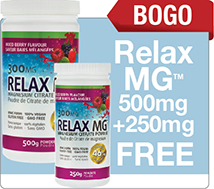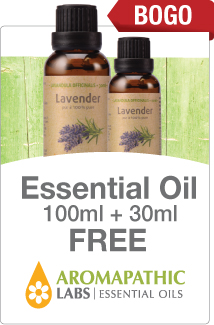Hair Health
Updated Aug. 15th, 2019
The condition of our hair is often a great sign of the underlying health of our entire body, and you really are what you eat. Often our hair and nails are the first parts of us to show nutrient deficiencies and signs of illness. Although a number of products can be applied to the hair to improve its appearance, true hair health comes from the inside, out. Soft, shiny, and smooth hair is a sign of good health, and a loss of these characteristics can indicate underlying imbalances in the body.
Hair Growth
In the same way that all of the cells in our bodies are replaced over time, our hair goes through similar life cycles. For more information on these cycles, please see our Hair Loss article. Although hair is not alive itself, it is a substance produced by living hair follicle cells in our skin. Hair grows at a rate of about ½ to ¾ of an inch each month. In order for our body to produce this growth, it requires the nutritional building blocks to do so. The major building blocks of hair are: protein, fat, water, and trace minerals. The final component of hair is the pigment molecules, which give each person’s hair its distinctive colour.
Hair protein Content
The precise amino acid content of hair and the genetic code used to manufacture it, both affect the shape, thickness, and texture of the completed hair strand. A protein called keratin makes up the vast majority of the structure of hair, between 65-95% by weight. When we don’t eat enough protein, it prevents the body from growing new hair as required. Even deficiencies in certain amino acids can cause problems, depending on your body’s particular requirements determined by your genes.
Hair Water Content
Approximately 6% - 14% of the weight of hair is made up of water which fluctuates depending on the surrounding humidity and whether or not the hair has been air dried or heat dried. Friction and static of hair is affected by its moisture content which is why the manageability of our hair changes depending on environmental humidity. When hair is blow dried with heat and moisture is removed, the hair will gradually collect moisture from the air throughout the day. That hair style you worked so hard to achieve will fall a bit and begin to frizz as your hair regains its moisture.
Hair Fat Content
Fat is the next major component of hair by weight, and can be found both inside the shaft of the hair, and deposited on its surface by the glands of the surrounding skin. Internal fat content accounts for 1-9% of the structure of hair, by weight. The most common fats found in hair are palmitoleic, palmitic, and oleic acids. In fact, 40-50% of the lipids found in the hair itself are unsaturated fatty acids (palmitoleic and oleic). In addition to this internal fat, there is also the protective layer of fat on the surface of the hair that affects the way the hair lays on the head. This fat layer is called sebum and is produced by glands in the skin surrounding the hair follicles. Over-washing can remove a large proportion of this protective layer and cause hair that is more prone to flyaways and static frizz. Because oil and water don’t mix, the protective layer of sebum on the surface of the hair can protect it against alteration by the humidity in the air. Thus, having some buildup of oil in your hair can help to prevent flyaways on humid days.
Hormonal Effects
Hormonal changes greatly affect the composition and texture of hair during our lifetime. This becomes most apparent at times of transition like puberty and menopause. The hair of premenopausal women was found to contain more sebum than that of postmenopausal women. As we age, our sebum production reduces and the hair’s permeability to sebum is also affected. This affects hair softness, smoothness and shine. Thus, the hormonal changes of menopause can directly affect the texture and quality of the hair. For more information on ways to combat these effects, please see our Menopause article. Interestingly, poor hormonal balance in our younger years can have similar effects on hair quality. For more information on hormonal balancing, please see our Estrogen Balance article.
Mineral Content
Hair also contains trace minerals, although usually this makes up less than 1% of its composition. Some of these minerals are incorporated during the growth process while some of them are deposited on the hair later by exposure from the environment. The hair of children in cities was found to contain much higher mineral content than those living in the country, farther from pollution.
Hair Mineral Analysis
It has been found by researchers that concentrations of metals such as cadmium, arsenic, mercury and lead in the hair tend to correlate with their concentrations of the same metals in the internal organs. Because of this fact, healthcare practitioners have become interested in performing hair mineral analysis to assess the body’s content of certain heavy metals. Testing for other minerals has proven to be less reliable than heavy metal testing in this manner.
Hair Concerns
There are a number of conditions that can affect hair growth and quality. For more information on these cases, please see our Hair Disorders article. When hair is dry and fragile, it is important to nourish it with oil to promote increased strength. This can be particularly beneficial in those with insufficient sebum production from their skin (those with dry skin). Trimming hair regularly to remove split ends early in their development can help to prevent them from traveling up the hair and further reducing its strength.
WAYS TO SUPPORT HEALTHY HAIR GROWTH
Although much of the quality and texture of your hair is determined by genetics, there are a number of things that you can do to get the most out of what you were born with.
Diet
It is imperative to eat a diet that is rich in the nutrients that the body needs to properly produce hair. Because protein is the main component of hair, it is essential to get sufficient protein in the diet. For more information on ways to do this, please see our Protein article. As listed below, a diet with sufficient sources of healthy protein, fat, and minerals is essential to healthy hair production. Some excellent food sources of these are: fish, dark green vegetables, carrots, beans and legumes, nuts, and eggs.
Be sure to drink plenty of water to keep the body and the hair well hydrated. It is important to note that low-calorie and low-fat diets often restrict the nutrients required for healthy hair growth. Because of this, crash diets or restrictive dietary plans can often cause hair loss. For more information, please see our Hair Loss article.
Lifestyle
How you take care of your hair can have a significant impact on its luster and life. The body naturally coats each strand of hair with sebum to help protect it from the elements, and shampooing too frequently can strip the hair of this protection. This causes dull, brittle, dry and frizzy hair. Using chemical-based products and processes, such as chemical hair dyes, perms and styling products can also strip this protective layer. Styling with heat can dry out the hair and reduce its water content, which also makes it more brittle and likely to break. Keeping the fat and water content of hair are both great ways to keep it shiny, smooth and strong. Shampooing on alternate days, or using more gentle and natural hair cleansers that contain moisturizing oils, are great ways to protect the oil content of the hair. Air drying the hair as often as possible, and avoiding the use of hair dryers and straighteners can also help to preserve the hair. Avoid violently combing or brushing hair, particularly when it is wet, as this will increase the likelihood of breaking hair strands. Managing stress and hormone levels are also extremely important for maintaining healthy hair growth.
Speeding Up Hair Growth
If you are looking to grow your hair faster, there has been some research into the stimulatory ability of scalp massage to promoting an increased rate of hair growth. This is likely because of increased blood flow to the hair follicles. As we always mention, exercising, and getting adequate sleep also help the body to manage stress and to promote the “rest and repair” time to allow for body processes such as hair growth.
Supplements for Hair Growth
There are a number of supplements that can help to support healthy hair growth. A deficiency in any vitamin or mineral in the body can result in hair loss. Checking in with your healthcare provider and doing simple blood work can help to determine if you are deficient in any key nutrients. Iron, Zinc and Selenium deficiencies can all cause hair loss, and supplementation can prevent and remedy these deficiencies. Vitamin C is required for collagen production in the body, and thus supplementation can help to provide the body with building blocks for better hair growth. Having sufficient Vitamin D in the body is also essential to hair growth, which can be produced by getting sufficient sunlight during the summer, while supplementation may be required in the winter months. The B Vitamins work together to help the body to manage stress and prevent stress-related hair loss. For more information, please see our Stress article. One of the B vitamins known as Biotin helps the body to metabolize the protein consumed so that it can be used to make new hair. Vitamin E helps to improve circulation to the scalp, which can help to promote healthy hair growth. Vitamin A is a precursor to retinoids in the body, which are substances that stimulate the hair follicle to produce new hair.























I found out I was low in iron. I increased by desiccated liver and my iron bisglycinate and my hair grew so fast! There was about 4 inches of growth in only 3 months. I also take other supplements but the only one increased was the iron.
Hello Raquel,
Thank you for sharing your results and experience. We're happy to hear your iron levels are back to a healthy level and that your hair is healthier for it too! When our body has sufficient nutrients, it can fully heal and repair itself.
Stay healthy & well!
I have been using Hubner Silicea for bone, cartilage and weightloss and the bonus has been longer, healthier and stronger hair as well as quick nail growth, better bone density , rebuilt cartilage and other little bonuses. I'll be buying this again as I recently went back to work to discover my back had reinjured itself, lol, and I refuse to let it get to me.
Hello Cinderita,
Thank you for sharing your experience with Hubner Silicea! It is great for all the health concerns you mentioned and can also be used topically on the skin. We wish your back a speedy recovery!
Stay healthy & well.
Who knew that hair was so complicated? I always shed hair in the shower and basically all the time but I never thought that my poor diet could be a contributing factor to this. I have taken biotin tablets previously in hopes of it helping to strengthen my hair and prevent fall outs however, I just find that biotin alone is not enough. It's good to have a list of supplements in combination that I can take with biotin to see if it will help.
Hello,
Indeed, our hair and skin can tell us a lot about what's going on inside. When we are lacking certain nutrients, our hair and skin will start to show tell tale signs like falling out, becoming dull, lack lustre and dry. We're glad you found this article useful and hope the recommendations can help.
Stay well!
I experienced a hair loss in the past and even though, I went to see my family doctor and a specialist, they were unable to help me with my hair loss! So, I did my own research and found out that multivitamin, biotin, zinc and fish oil were crucial for my hair to grow and be stronger. I highly advice you to follow all the above recommended ingredients in order to deal with hair loss.
Hello Margo,
We're happy our article could help you find the nutrients that have helped your hair. There are many essential vitamins and supplements that support healthy hair and skin that we don't always get enough of in our diets alone. Happy these have helped you and your hair is on its way back to being healthy! If you'd like to learn more about each individual supplement, check out our supplement articles too:
https://www.nationalnutrition.ca/articles/supplements/
Have a healthy day!